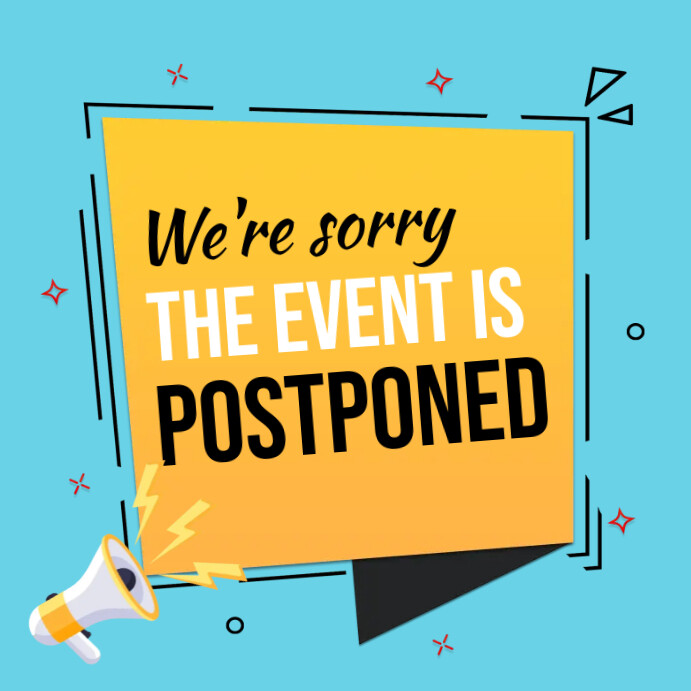
In the face of unpredictable weather, natural disasters, and other unforeseen circumstances, event postponements and cancellations are, unfortunately, often unavoidable. For event organizers, managing these situations effectively is essential to maintaining trust and ensuring a positive experience for attendees, even when plans change. Here’s a comprehensive guide on navigating postponements and refunds smoothly and professionally.
Prepare for the Possibility: Crafting a Contingency Plan
Planning for contingencies should be a cornerstone of any event management strategy. Before tickets go on sale, establish clear guidelines for cancellations, postponements, and refunds. Consider the following steps:
Set Clear Policies: Outline refund and rescheduling policies on your ticketing site. Be specific about the conditions under which a refund will be granted and if there are fees or alternative options (e.g., ticket transfers).
Insurance Options: Event insurance, particularly policies that cover weather-related disruptions, can protect your investment. Research policies that suit your event type and location.
Establish Partnerships: Work closely with your venue and vendors to understand their policies on cancellations or date changes. This ensures a smoother process when renegotiating or rebooking.
Communicate Early and Often
Communication is key to managing the expectations of ticket holders, vendors, and staff. When a postponement or cancellation becomes necessary, aim to communicate promptly and clearly:

Use Multiple Channels: Notify attendees through all available platforms—email, social media, SMS alerts, and the event website. The message should include the reason for the postponement, new event details (if applicable), and the process for refunds or exchanges. Through your Afton Tickets account you can easily make use of the ‘Contact Customers’ tab to achieve this.
Set Up a FAQ Section: Anticipate common questions, such as whether the original tickets are valid for a rescheduled date, how to request a refund, and how to stay updated.
Provide Regular Updates: In the case of a postponement, send updates on new dates or event status to keep your audience engaged. Frequent communication shows that you’re actively working on solutions and prioritizes transparency.
Handle Refunds and Ticket Exchanges with Care
Attendees expect fair and accessible options when plans change. To streamline the refund and exchange process, consider the following:
Offer Flexible Options: Whenever possible, offer attendees the choice to retain tickets for the new date (as a credit), transfer tickets to another event, or receive a refund. Keep in mind that even in cases when the cancellation is out of your control it is still important to keep customers happy so they will purchase again for the following year. So always do a cost benifit analysis when deciding your options.
Automate Refund Processes: Work with your ticketing platform to automate refunds where possible. Automated processes reduce wait times, simplify your workload, and enhance customer satisfaction.
Outline a Refund Timeline: Clearly communicate when attendees can expect refunds. If possible, set a deadline for refund requests and process them promptly. A structured timeline helps manage expectations and minimizes repeat inquiries.
Mitigate Financial Impact with Creative Solutions
Cancellations and postponements can have a significant financial impact, but there are ways to offset losses:
Virtual Event Alternatives: Consider hosting virtual events, such as webinars or live streams, for attendees who may not be able to attend a rescheduled date. Virtual events allow you to engage your audience and can even generate revenue. This is a very easy backup option to set for your event for little cost to you the event organizer.
Merchandise Sales: Sell branded merchandise or exclusive event-related items to attendees who still want a tangible experience. This can help recover some revenue while giving attendees a memento of the event.
Pre-Sale for Future Events: Offer a limited-time discount on tickets to future events for attendees affected by the postponement. If you want to incentivize customers to take a honored ticket for a reschedule date you can follow it up with a promo code (Discount) for a future year.
Stay Proactive and Adapt
Every postponement or cancellation is an opportunity to learn and improve. Regularly review your processes and assess feedback to enhance your approach. Staying proactive and adaptable helps you prepare for the unexpected and strengthens your reputation as a professional, customer-focused event organizer.
Conclusion
Navigating postponements and refunds requires planning, clear communication, and a customer-centric approach. With a comprehensive contingency plan and a reliable ticketing partner, you can handle postponements smoothly and preserve customer trust even in challenging situations. By putting customers’ needs first and staying transparent, you’ll build a reputation that keeps attendees coming back—rain or shine.
As always if you are looking for some great events to attend you can click HERE to see all our upcoming events.
Other Articles








